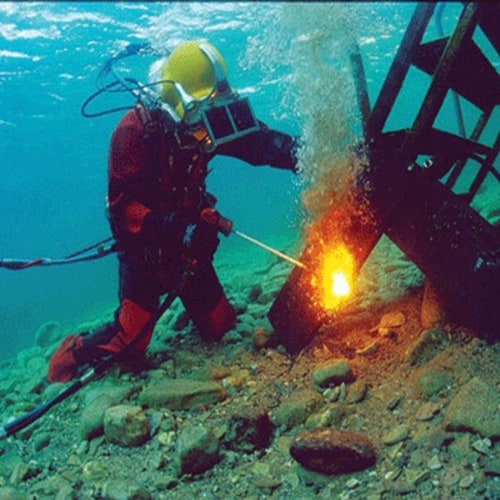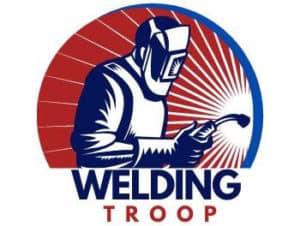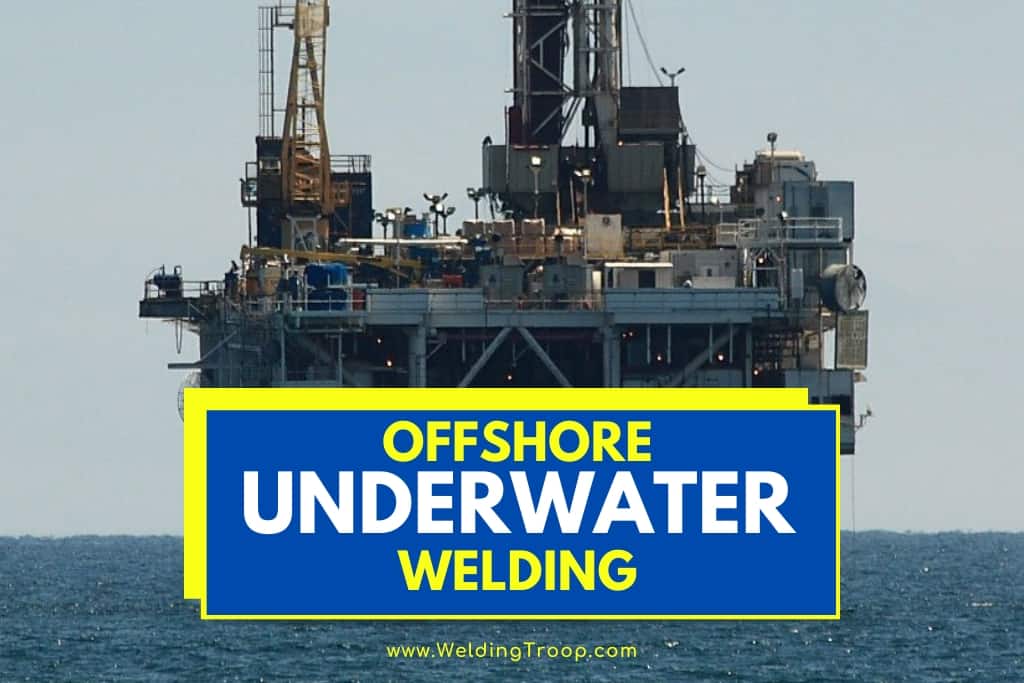The Little Mermaid probably isn’t the first thing that comes to mind when you think of welding jobs, and yet Sebastian’s declaration that “it’s hotter under the water” works just as well for the hot world of underwater welding.
Offshore underwater welding can mean working on ships, for example, you may be tasked with repairing underwater pipelines or subsea installations. let’s take a deeper dive and see what offshore underwater welding jobs have to offer and why $49,140 is the average salary in the US.
It’s the kind of job that tends to sound like a joke or impossibility to outsiders, but make no mistake – underwater welding is one of the hottest jobs in the entire welding industry. It can pay some of the best salaries, lead to some of the most interesting jobs, and opens up whole new career paths you might never have otherwise imagined.
Take, for example, offshore underwater welding jobs. Shorelines are always some of the most commercially-active communities, and that’s especially true of all the military and oil industry work going on there today.
Table of Contents
Job Description
At first blush, offshore water welding can seem like something impossible or impossibly dangerous.
Do people really do welding work underwater?
Yes, they do.
But is it really safe?
Yes, it is – if you train properly. More on that later.
First, let’s dive a little deeper into what offshore underwater welders actually do and how they go about doing it.
Offshore welding can mean working on ships, rigs, buildings, or any number of metal and thermoplastic structures whose assembly process includes underwater work.
These underwater welding tasks can be accomplished with either wet or dry welding techniques. The terms themselves refer to whether or not the diver is placed in a dry climate-controlled hyperbaric chamber, or welds in the open water.
The latter is less expensive, but riskier and less common. Dry welding is, thus, the most common form of underwater welding, and forms the bulk of many types of offshore welding positions.

When welding in these settings, you need to make sure that you stay safe, and that means having the right equipment for the job. What that is precisely will depend on the nature of the job and whether you are dry or wet welding.
Nevertheless, you should always have a quality set of tough, thick waterproof gloves and diving attire which can double as welding wear. Needless to say that’s a very narrow category, so you’ll need to buy specialized diving wear for welders.
You will also want to make sure you have the proper welding equipment in terms of the welding arc and electrodes you use. These should both be waterproof and approved for use in underwater welding.
You’ll want to check to see which types of welding tools work best for the job you are planning to do. For example, certain welding arcs and shielding gasses are better suited to dry welding rather than wet welding, and vice versa.
Among the skills necessary for an underwater welder are:
- A high school diploma
- A commercial diving certification
- An Associate’s degree or certificate for welding and fabrication
- Possible certificates for working with machinery
- Completion of a commercial diver training program
- An AWS certification is greatly recommended
Some of the most important personal skills for commercial divers and underwater welders include:
- Being highly-motivated individuals with a strong sense of direction
- Having a strong commitment and sense of purpose
- Being eager and able to work challenging jobs
- Possessing the physical capability to perform demanding work on a daily basis
- Being flexible enough to respond to new challenges as they arise
- Being a team player
- Being very organized and focused on details
- Having a calm temperament under pressure
Perks of the Job
With that in mind, let’s take a look at some of the perks of the job, starting with the fact that it’s anything but typical. Routine isn’t your thing. Neither is the boxed-in boredom and pettiness of office politics.
You want to work outdoors.
You want to work with your hands.
You want to work different hours, work different jobs every day, and feel like you’re actually doing something that’s not just meaningful and satisfactory but, well, different.
Luckily, those are all among the best perks offered by offshore underwater welding jobs.
Not only do you get to work outdoors, you get to work in settings most people can never even imagine, let alone see for themselves. Undersea work is some of the rarest in the world. What’s more, there’s no denying that coastal regions offer some of the best mixes of natural beauty and vibrant communities and culture anywhere in the world.
Related article: What Type of Welding Is Used in Underwater Welding? How Does It Work?
From Gulf Sea jobs in Louisiana, Alabama, Mississippi, and Florida to positions on either side of the Atlantic off the coast of Northeastern and British cities, offshore welding jobs let you see the world – above and below the waves.
Offshore welding, like all welding jobs, also offers the unique satisfaction of being able to work with your hands. One of the great issues with modern work is that you can sometimes feel disconnected from the results of your work.
Related article: Advantages of Being a Welder >>Salary, Working Hours | Worklife Balance
What kind of personal connection do you have with filed memos or your fifth pointless phone call of the morning? With underwater welding, you’re working with sparks and steel to create ships, rigs, buildings, and the kind of things people actually use and care about.
It’s important work, can give your life a sense of importance – and nobody can put a price on that.
Offshore Welding Salary
All of those perks may be attractive, but they won’t pay the bills.
What kind of money can you make with offshore welding?
The answer may be more than you might expect.
That said, there are a few caveats that come with those big salaries.
For one thing, you certainly won’t be raking in the biggest salaries when you first start out. Of course, that’s the case in any, and even an entry-level offshore welder compares reasonably well to their landlubber colleagues. The median salary for entry-level welders is around $41,000, while the figure for offshore welders is closer to $49,140 in the US and £67,500 in the UK.
What’s more, certain types of underwater welding can actually pay more the deeper in the sea you go while working. Some employers pay an additional $1 to $4 for every foot of water. That may not seem like much, but when you’re operating deep beneath the waves, it can add up quickly.
When the topic of offshore underwater welding salary is brought up online, you’ll often see promises of six figure salaries. This is one of the biggest selling points of offshore underwater welding jobs, and it’s a claim that mostly holds water. That said, it’s worth noting that it takes a while to get up to that level. You have to go through training, as described below, and then work your way up to the top tier.

Even so, there is no denying that offshore underwater welding is a highly specialized position, which means there are fewer qualified welders for it than in other fields, which in turn increases demand. It may take you a while to gain the training and experience you need to get there, but the benefits can be worth it as long as you know what you are getting into.
In short, these kinds of jobs are a long-term bet. If you are looking to make money quick, other welding jobs may be better. If you are willing and able to put in the years of work and training necessary, underwater welding can be surprisingly lucrative and, given the specialized yet highly necessary nature of the work, provide you with a stable job that can withstand market trends.
Underwater welding and commercial diving are projected by the US Bureau of Labor Statistics to grow by 7% by 2028, making it a job with a future.
Offshore Welding Training
If you have read all of this and think that underwater welding is for you, then you’ll want to make sure you sign on with a proper commercial diving and underwater welding training program. These can take anywhere from a few months to a year or two depending on what type of diving and welding you are learning and how much prior experience you have with either.
As with any training program or university course, tuition costs can be a concern. However, there are programs out there to help mitigate those costs. For example, if you are a veteran or are covered by the Post-9/11 Veterans Educational Assistance Act, you may be able to qualify for financial assistance.
Offshore underwater welding work is an exciting, complex, multifaceted career with a bright future. It may take a while to get all the training necessary, but as the benefits and pay demonstrate, some of the world’s best welding jobs are indeed found Under the Sea.
Recommended Reading
7 Steps for Avoiding Electric Shock When Welding Underwater
What Type of Welding Is Used in Underwater Welding? How Does It Work?
Offshore Air Diving in the Ocean >> Video

